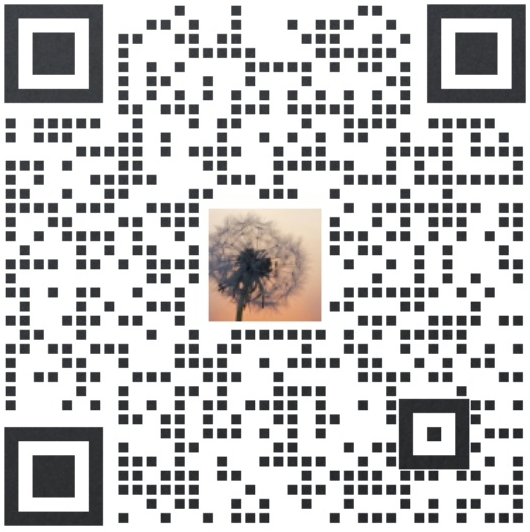音频科普:帮助免疫系统对抗癌症获诺贝尔奖
音频科普:帮助免疫系统对抗癌症获诺贝尔奖
James P. Allison and Tasuku Honjo share the Nobel Prize for their work on harnessing the cancer patient's own immune system to destroy tumors.James P. Allison和Tasuku Honjo因他们在利用癌症患者自身的免疫系统来摧毁肿瘤方面的工作分享了诺贝尔奖。
撰文\播音:史蒂夫·米尔斯基(Steve Mirsky)
翻译:邱燕宁
审校:张清越
“The Nobel Assembly at Karolinska Institute has today decided to award the 2018 Nobel Prize in Physiology or Medicine, jointly to James P. Allison and Tasuku Honjo for their discovery of cancer therapy by inhibition of negative immune regulation.”
“今天,卡罗林斯卡学院的诺贝尔大会决定将2018年诺贝尔生理学或医学奖授予James P. Allison和Tasuku Honjo,以表彰他们发现了通过抑制负向免疫调节来治疗癌症的方法。”
Thomas Perlmann, secretary of the Nobel Assembly shortly after 5:30 this morning Eastern time.
美国东部时间今天上午5:30分后不久,诺贝尔大会秘书Thomas Perlmann如是说。
“James P. Allison was born in Alice, in Texas, in the United States. He performed his prize-winning studies at the University of California, Berkeley, and at Memorial Sloan Kettering Cancer Center in New York. He is now active at The University of Texas M. D. Anderson Cancer Center in Houston. Tasuku Honjo was born in Kyoto, in Japan. He performed his prize-winning studies at Kyoto University, where he is still active.”
James P. Allison在美国德克萨斯州的Alice出生。他在加州大学伯克利分校和纽约纪念斯隆凯特琳癌症中心进行了获奖研究。他现在就职于休斯顿的德克萨斯大学安德森癌症中心。本卓生于日本京都。他在京都大学完成了他的获奖研究,现在仍在那里工作。
Karolinska Institute immunologist Klas Kärre, a member of the Nobel Committee, explained the significance of the work of the new Nobel laureates:
卡罗林斯卡研究所免疫学家Klas Kärre是诺贝尔委员会的成员,他解释了新诺贝尔奖获得者的工作意义:
“Allison’s and Honjo’s discoveries have added a new pillar in cancer therapy. It represents a completely new principle, because unlike the previous strategies it is not based on targeting the cancer cells, but rather the brakes, the checkpoints, of the host immune system. The seminal discoveries by the two laureates constitute a paradigmatic shift and a landmark in the fight against cancer.”
Allison和Honjo的发现为癌症治疗增加了新的基石。它与之前的策略不同,代表了一个全新的理念,因为它不是针对癌细胞,而是针对宿主免疫系统的检查点。两位获奖者的开创性发现构成了一个范式转变,也是抗击癌症的一个里程碑。
关注【深圳科普】微信公众号,在对话框:
回复【最新活动】,了解近期科普活动
回复【科普行】,了解最新深圳科普行活动
回复【研学营】,了解最新科普研学营
回复【科普课堂】,了解最新科普课堂
回复【科普书籍】,了解最新科普书籍
回复【团体定制】,了解最新团体定制活动
回复【科普基地】,了解深圳科普基地详情
回复【观鸟知识】,学习观鸟相关科普知识
回复【博物学院】,了解更多博物学院活动详情
James P. Allison and Tasuku Honjo share the Nobel Prize for their work on harnessing the cancer patient's own immune system to destroy tumors.James P. Allison和Tasuku Honjo因他们在利用癌症患者自身的免疫系统来摧毁肿瘤方面的工作分享了诺贝尔奖。
撰文\播音:史蒂夫·米尔斯基(Steve Mirsky)
翻译:邱燕宁
审校:张清越
“The Nobel Assembly at Karolinska Institute has today decided to award the 2018 Nobel Prize in Physiology or Medicine, jointly to James P. Allison and Tasuku Honjo for their discovery of cancer therapy by inhibition of negative immune regulation.”
“今天,卡罗林斯卡学院的诺贝尔大会决定将2018年诺贝尔生理学或医学奖授予James P. Allison和Tasuku Honjo,以表彰他们发现了通过抑制负向免疫调节来治疗癌症的方法。”
Thomas Perlmann, secretary of the Nobel Assembly shortly after 5:30 this morning Eastern time.
美国东部时间今天上午5:30分后不久,诺贝尔大会秘书Thomas Perlmann如是说。
“James P. Allison was born in Alice, in Texas, in the United States. He performed his prize-winning studies at the University of California, Berkeley, and at Memorial Sloan Kettering Cancer Center in New York. He is now active at The University of Texas M. D. Anderson Cancer Center in Houston. Tasuku Honjo was born in Kyoto, in Japan. He performed his prize-winning studies at Kyoto University, where he is still active.”
James P. Allison在美国德克萨斯州的Alice出生。他在加州大学伯克利分校和纽约纪念斯隆凯特琳癌症中心进行了获奖研究。他现在就职于休斯顿的德克萨斯大学安德森癌症中心。本卓生于日本京都。他在京都大学完成了他的获奖研究,现在仍在那里工作。
Karolinska Institute immunologist Klas Kärre, a member of the Nobel Committee, explained the significance of the work of the new Nobel laureates:
卡罗林斯卡研究所免疫学家Klas Kärre是诺贝尔委员会的成员,他解释了新诺贝尔奖获得者的工作意义:
“Allison’s and Honjo’s discoveries have added a new pillar in cancer therapy. It represents a completely new principle, because unlike the previous strategies it is not based on targeting the cancer cells, but rather the brakes, the checkpoints, of the host immune system. The seminal discoveries by the two laureates constitute a paradigmatic shift and a landmark in the fight against cancer.”
Allison和Honjo的发现为癌症治疗增加了新的基石。它与之前的策略不同,代表了一个全新的理念,因为它不是针对癌细胞,而是针对宿主免疫系统的检查点。两位获奖者的开创性发现构成了一个范式转变,也是抗击癌症的一个里程碑。
关注【深圳科普】微信公众号,在对话框:
回复【最新活动】,了解近期科普活动
回复【科普行】,了解最新深圳科普行活动
回复【研学营】,了解最新科普研学营
回复【科普课堂】,了解最新科普课堂
回复【科普书籍】,了解最新科普书籍
回复【团体定制】,了解最新团体定制活动
回复【科普基地】,了解深圳科普基地详情
回复【观鸟知识】,学习观鸟相关科普知识
回复【博物学院】,了解更多博物学院活动详情

做科普,我们是认真的!
扫描关注深i科普公众号
加入科普活动群

- 参加最新科普活动
- 认识科普小朋友
- 成为科学小记者
 会员登录
会员登录
















 深圳市宝安区国际会展中心20号馆
深圳市宝安区国际会展中心20号馆







